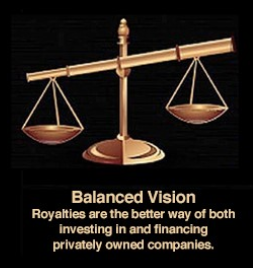
It is possible for royalty investors to receive daily payments if the royalty issuing company receives daily revenues, since a royalty agreement can stipulate any terms mutually agreeable to the parties. While investors may find it convenient for the agreed percentage of revenues to be paid immediately when revenues are deposited in the issuer’s designated bank account, it might also work for other payment requirements which can also be negotiated.
Royalty investors contract with the royalty issuing company for payment of a percentage of defined revenues. The definition can be for 100% of revenues or the revenues can be from or exclude specified geographic areas or from specific business lines or products.
Royalty investors should be able to expect a minimum payment of a percentage of projected revenues. If there is a shortfall in the amount projected, that amount can be added to that due to the investor from future revenues. The maturity of the contract can also be extended in the case that there is any outstanding amount due to the investor.
Royalty investors are not lenders, because royalties are not loans and royalty payments are deductible from the royalty issuing company’s federal income taxes. Royalty investors are not required to pay federal income tax on royalty payments until the cost of the royalty has been received as a return of capital. Thereafter, royalty payments are considered ordinary income, the same as in the case of dividends.
Royalty investors are dependent on the royalty issuing company’s sustainability. The royalty investors also benefit from a growth of the royalty issuing company revenues and should research the royalty issuing company’s revenue projections. The economic outlook for the issuing company’s existing and targeted customers and the competitive value of the company’s product or services should be positive.
We can assist both companies and investors in the structuring of royalties. Ideally, royalty investors can expect a continuing and increasing flow of royalty payments, while being contractually protected from results being less than the minimum projected revenues and payments. The benefit to the royalty issuing company is that the funding is non-equity dilutive. In many cases where stock in an early-stage company is sold to investors, the business founders suffer significant ownership loss in return for the capital, and then regret that dilution if the company becomes successful.
Arthur Lipper, Chairman arthurlipper@gmail.com
British Far East Holdings Ltd.
